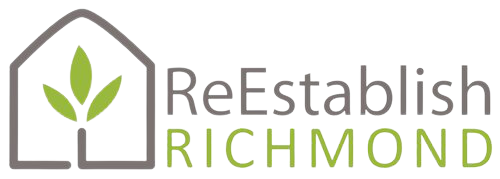Storytelling for Radio: a Workshop in Bringing the Past to Life
Story written by Jennifer Weatherly, ReR volunteer
Stories tend to start in fragments—with moments, and details. Every time you hear a podcast, for example, you’re hearing the essential thread of many hours of thought, note taking, and mental and emotional preparation, all of which sprout from the seed of a small idea.
In January, a few members of the refugee community had the opportunity to dive into this process at the Community Idea Stations (WCVE). A workshop called Storytelling for Radio gave each attendee the space to flex his or her creative muscles, and to work with a mentor from the station to practice sharing personal stories about their lives and cultures. Led by podcast producer Angela Massino and senior producer Catherine Komp, the workshop served as a taste of an in-the-works podcast called Resettled, and a chance to encourage speakers with the idea of possibly being part of it in the future.
Over the course of a day at the station, the group began by listening to powerful examples of podcasts about others’ reflections on their culture and resettlement in the U.S. “My Garden,” an episode of Jungala Radio, and an episode of Feet in 2 Worlds both struck a chord with the group; the stories’ blend of music, ambient sound and story made their narratives poignant and memorable.
These examples served as inspiration for the interactive part of the workshop. Everyone then circled around to practice a series of vocal exercises; following that, to speak with an assigned mentor about what kind of story each person would tell based on one of a series of prompts. These prompts—questions of culture, work, education, family, and the process of arriving in the U.S.—reflected the central theme of Resettled, which is ultimately going to recount refugees’ stories of adjusting to life in Virginia and coming to terms with their new lives.
What ultimately results from this project and Resettled is yet to be seen, but the heart of the workshop was easy to see: that is, how meaningful the details are to our lives, and how important it is to recognize them. True, major occurrences—a death, a loss, a cataclysmic event that leads to having to seek asylum—are what change our lives. But the small parts—a favorite meal, a morning ritual—added together are what make a life complete. When they are missing, when they are lacking, we notice; their presence means the world to us.
The stories told during the workshop, and the examples that the leaders shared, reaffirmed that, even when your whole world has been upended, you are still essentially you, and what you remember or bring with you says so. What you remember, and what you seek to recreate, illustrates what is truly important.
These are the kinds of stories that the workshop attendees sought to tell, and that Resettled will continue to let unfold. This current wave of podcast popularity is not without cause, after all: it’s a sort of ancient-meets-modern mode of storytelling that resonates with us because it’s immersive. For the refugee and international community in particular, it’s a way to give individuals’ past and present lives room to breathe. It’s a path toward helping people feel at home no matter where they are, even for just a few minutes. And it’s a means of coming to a better understanding of one another, especially when we feel disparate or too different.
At ReEstablish Richmond, we’re looking forward to sharing more of these kinds of stories soon. Watch for updates through our newsletter each month! Because the refugee community’s stories are the heart of our work here, sharing them is what helps us keep growing and staying involved throughout Richmond.


